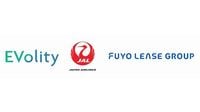As Japan gears up for the Golden Week holiday starting April 26, 2025, the country is experiencing a surge in travel, reminiscent of pre-pandemic times. Narita Airport is already bustling with activity, as travelers line up to catch their flights, indicating a return to normalcy after years of restrictions. The expected number of departures is on par with levels seen before the COVID-19 pandemic, showcasing the pent-up demand for travel among Japanese citizens.
In a related development, the Ministry of Agriculture, Forestry and Fisheries has reported a significant spike in rice prices, which have more than doubled compared to last year. The average price of rice sold at supermarkets nationwide reached 4217 yen per 5 kilograms during the week leading up to April 13, 2025. This price surge has prompted many travelers returning from countries in Asia, particularly India and Thailand, to purchase rice locally and bring it back to Japan. The Narita branch of the Yokohama Plant Protection Station has noted a rapid increase in these purchases, especially in recent weeks.
As travelers flock to Narita Airport, they are reminded of the regulations surrounding the import of agricultural products. Individuals bringing polished rice into Japan must obtain an inspection certificate from the government agency of the exporting country and undergo inspection upon entry. Hidefumi Ueda, Chief Plant Quarantine Officer at the Narita Branch, emphasized the importance of this requirement, especially with the upcoming Golden Week holidays expected to increase international travel.
Ueda stated, "With the upcoming Golden Week holidays, the number of people traveling abroad will increase, and I urge people to be aware of the need to obtain certificates when bringing rice into Japan." This caution is critical, as failing to provide the necessary documentation could lead to the confiscation of the rice and potential legal consequences, including imprisonment for up to three years or fines reaching 3 million yen.
In addition to rice, travelers should be aware that most meat products and animal-derived items are prohibited from being brought into Japan. The regulations are in place to prevent the introduction and spread of pests and diseases that could harm Japan's agricultural industry. The Plant Protection Station has been proactive in educating the public about these restrictions, especially as the travel season approaches.
Meanwhile, in a move towards sustainability, Fuyo Auto Lease, under Fuyo General Lease, and EVolity, a joint venture between Marubeni and Panasonic Holdings, have announced the introduction of electric vehicles (EVs) and charging infrastructure for Japan Airlines (JAL) at Narita International Airport. This initiative, launched on April 25, 2025, aims to enhance the operational efficiency of JAL's engine maintenance center.
As part of the one-stop solution, Fuyo Auto Lease will provide the FoloFly F1VS 4-seater 1-ton commercial EV van and a regular charger. EVolity will support the operation management with its fleet management system, which will monitor battery levels and mileage, allowing for a visualization of the benefits of EV adoption, including CO2 emission reductions and fuel cost savings.
With the introduction of these EVs, the goal is to improve the operational efficiency of JAL's fleet through remote vehicle management and charging management. The initiative reflects a broader trend towards decarbonization in various sectors, including aviation.
The combined impact of rising rice prices and increased travel activity at Narita Airport illustrates the changing landscape of consumer behavior and the importance of adhering to regulations. As travelers prepare for their journeys, they must navigate the complexities of international travel, especially concerning agricultural imports.
As more people plan their trips during the Golden Week, the excitement of travel is palpable, but so are the challenges. Whether it's ensuring compliance with import regulations or adapting to new travel norms, the upcoming holiday period is set to be a significant moment for both the aviation industry and consumers alike.
As travelers make their plans, they should remain informed about the requirements for bringing items back to Japan, especially rice, which has become a sought-after commodity due to its skyrocketing prices. The Narita Plant Protection Station continues to urge travelers to familiarize themselves with the necessary documentation to avoid complications upon their return.
In summary, Japan is witnessing a revival in travel, with Narita Airport bustling ahead of the Golden Week holidays while simultaneously grappling with rising rice prices and the regulations surrounding agricultural imports. The intersection of these factors highlights the dynamic nature of consumer behavior and regulatory compliance in a post-pandemic world.

